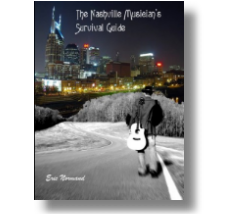I read an interesting message board post the other day in which this question was raised. The post was written by a musician who had just opened for Grand Funk Railroad. His account tells of an exciting day and show for his local band (and the 4000+ in attendance). They were treated well by the event staff, had their own backstage area, and performed to a packed house through state-of-the-art production. They were even able to bring their families to share in this experience.
The only negative was his perception of the day’s headliner. While giving GFR credit for having exceptional musicianship and putting on a “killer show”, he went on to say that they were “tremendous jerks”. This was apparently based on the fact that the band was nowhere to be found throughout the day despite an interest from some fans for autographs, and a desire for the musicians in the opening band to meet them. The fact that they were not hanging around backstage all day was interpreted to mean “GFR wanted nothing to do with the unwashed masses”. He went on to comment that there was a cooler backstage marked “Grand Funk Only” and that he opened it up only to find that “there was nothing in there but fruit juice anyway.”
Lastly he mentioned that he met a man with his son in the parking lot and that the young boy wanted his sticks signed by Grand Funk’s drummer. So during Grand Funk’s set this local musician takes the young boys sticks to a security guard requesting the autograph. Apparently the security guard declined, prompting the comment in this fellow’s post “How do you behave like that?”
This brings up some common false perceptions that many people have about national level touring acts and high profile artists.
First of all, touring is hard work. Despite what might be portrayed on some VH1 episode of behind the music, the life of a touring artist or band is not all that glamorous. When I went to Grand Funk’s website I noticed this particular show was a one-off, with no dates preceding or following it by a week. Likely, this appearance in Webster MA was a fly date for the band and crew. For a band like Grand Funk performing a show of this nature, they probably flew in the day of the show. They might have gotten up as early as 5 or 6 AM to drive to an airport, spent 8 to 10 hours trekking suitcases and guitars through airports, onto planes, through more airports and planes, eventually winding on a van ride to a hotel somewhere near the venue. They might have appeared at the venue for a mid-afternoon sound check and then returned to the hotel for dinner and a shower before the show. By the time they hit the stage for their performance at eight or nine at night they might have been up for 12 to 14 hours. Regardless of their daily activities and methods of transportation, it sounded like the concert was their primary focus as they supposedly put on a “killer show”.
According to Grand Funk’s website, one run of shows earlier in the summer brought them from back-to-back concerts in California, to Michigan, back to California, to Montana, Oregon, and then Washington, all in less than 10 days. Judging by the routing, these were undoubtedly fly dates with some long van rides likely in the mix. Just one fly date can be exhausting, let alone eight in a row. Other touring scenarios put acts like Grand Funk and others on a tour bus as a means of travel. While a half million dollar Prevost XLII might seem plush upon first examination, it is still, just a bus. And this means they are sleeping in a bunk about the size of a coffin while rolling down the highway at 75 mph. Sometimes the location of concert dates requires as much as 500 to 1000 miles of bus travel between shows (8 to 16 hours of driving time). I don’t care how nice the bus is, traveling thousands of miles in a week is exhausting.
This is all part of the job of a touring band, artist, or musician, and most take it in stride. While the musical performance might be the high point of the day, the long hours of travel, isolation from family and friends, and constantly being around other people causes many performers to cherish the occasional privacy they may have on the road.
So just because you didn’t “see them” doesn’t mean they weren’t there at some point before the show. Or maybe travel arrangements didn’t even get them on site until minutes before the show. Maybe they were on site well before showtime and hanging in some dressing room, tired from traveling and saving their strength to put on a “killer show”. Maybe the cooler was labeled “Grand Funk Only” because they only drink fruit juice, and this was their only beverage for the night. Many artists are required by event buyers to put on a “Meet and Greet” in which case they might have to meet, be photographed with, and sign autographs with as many as 50 people or more, likely all of whom are complete strangers. These Meet and Greets are not typically optional, and if an artist is tired or even ill they must put on a happy face and go out to shake hands with this roomful of strangers.
It would be no different than if you were standing in line at the bank on your lunch break and a complete stranger started talking to you and demanding your undivided attention. You might talk to him because you’re a nice person, but you might have actually preferred to be left alone, to enjoy your own privacy.
High profile bands, musicians, and artists are just people. Touring on a national level is just a job for these folks, and a hard job at that. All the public sees at a concert is the finished product, a concert hall prepped for hours before the doors are even opened. The version of their favorite band or artist they see is the “showbiz” face all artists are required to wear. But the reality is that by the time that performer hits the stage they have likely had a hectic and busy day. They will likely leave that concert venue after the show only to do it all over again the next day. On the one day out of the year that you saw them in concert, they might be having a great day, or, they might be tired, sick, or having a not so great day. They might be missing their kids, experiencing marital problems, or even going through financial hardships. They are just people that happened to choose music as a profession – real people that experience real human emotions, have lives away from their job, and go through all of the same kinds of problems that life throws at the rest of us. The only difference is their profession doesn’t allow for sick days.
So, what do bands and artists owe the public and their fans? The answer is quite simple – a great show. Nothing less, and nothing more.



Leave a Reply
You must be logged in to post a comment.